
Q: How did the criminal justice system as we know it develop in Britain?
A: Aspects of the modern criminal justice system can be traced back to the 12th and 13th centuries, such as the introduction of trial by jury, which emerged during the reign of Henry II [r1154-89]. He established that 12 free men should be assigned to act in land disputes, but he also introduced the use of a grand jury in assize courts, where 12 men had to report crimes in their local area to a judge.
Although there were previous systems that involved groups of men making decisions, it was only during this period that the concept developed further and became more recognizably modern. Prior to this, crimes were dealt with using trial by ordeal, which would involve subjecting people to extreme punishments, and torturing them to see whether they were guilty or innocent.
The introduction of trial by jury was a real marker of the civilization of society if you like. And then you had Magna Carta in 1215, in which being afforded a trial by jury was made an explicit right.
Q: Are there any punishments of the past that we would find ludicrous today?
A: There have been many bizarre methods of punishment throughout history. For example, there were things like the ducking stool or cucking stool a long construct with a stool at one end, to which the offender would be strapped and then dunked into a body of water. People could also be forced to wear contraptions such as the scold's bridle (see page 43), which was sometimes known as the ranks. These methods of punishment were targeted at local gossips, and it was mainly women who were on the receiving end of them.
This story is from the {{IssueName}} edition of {{MagazineName}}.
Start your 7-day Magzter GOLD free trial to access thousands of curated premium stories, and 9,000+ magazines and newspapers.
Already a subscriber ? Sign In
This story is from the {{IssueName}} edition of {{MagazineName}}.
Start your 7-day Magzter GOLD free trial to access thousands of curated premium stories, and 9,000+ magazines and newspapers.
Already a subscriber? Sign In
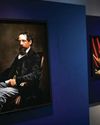
'Dickens's evocation of the fears, excitement and confusion of childhood is peerless'
DR LEE JACKSON ON WHY CHARLES DICKENS REMAINS RELEVANT TODAY
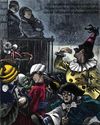
THE AUTHOR GOES ABROAD
Dickens expanded his horizons and boosted his fan-base by venturing overseas - but global fame came with a cost
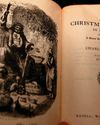
REVIVING THE FESTIVE SPIRIT
A Christmas Carol wasn't just a bestseller - it changed the way that Britons chose to mark the festive season
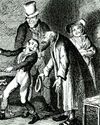
GIVING THE POOR A VOICE
From Hard Times to Oliver Twist, Charles Dickens used his pen to help illuminate the lives of the less fortunate
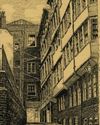
A JOURNEY THROUGH DICKENS'S LONDON
The works of Charles Dickens are synonymous with visions of Victorian London. We talk to Dr Lee Jackson about the author's love of the capital, and the locations that most inspired him
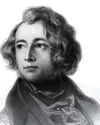
EXCEEDING EXPECTATIONS
Dr Lee Jackson chronicles Charles Dickens's journey from down-at-luck teenager to titan of Victorian literature

GIFTS, TREES & FEASTING
We take a journey through the photo archives to reveal how Christmas and its many traditions have been celebrated over the years - and around the world
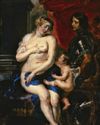
WHAT GREAT PAINTINGS SAY
We explore the story behind an allegorical painting that celebrates the triumph of love over hate, peace over war
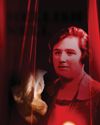
HELLISH NELL
Malcolm Gaskill delves into the life of Helen Duncan - the fraudulent Scottish medium whose ectoplasm-filled seances saw her ending up on the wrong side of the law

7 THINGS YOU (PROBABLY) DIDN'T KNOW ABOUT THE WHITE HOUSE
Presidential historian Dr Lindsay M Chervinsky reveals some of the most surprising facts about the world-famous US residence